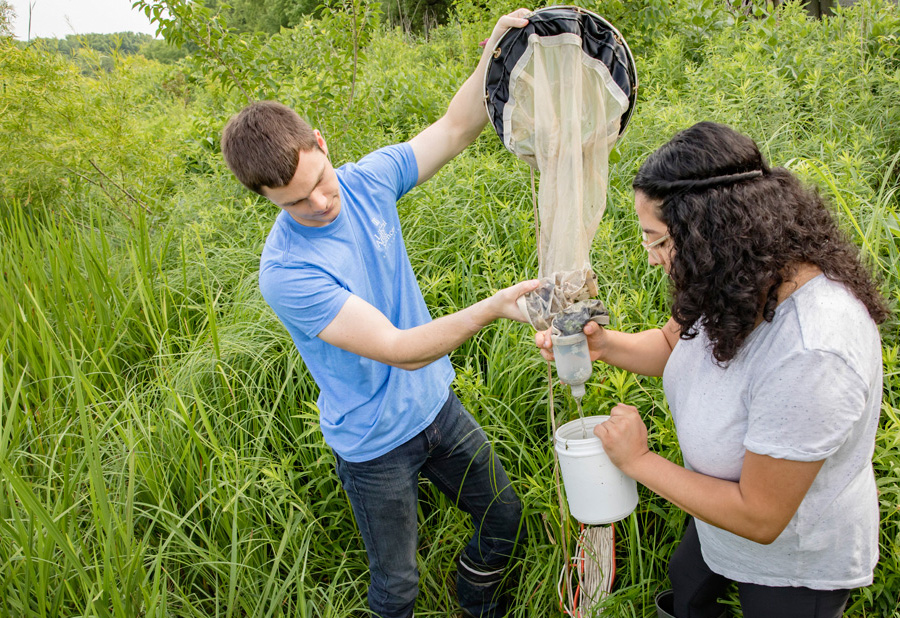
Cleaning up a toxic waste site. Preventing homes and businesses from flooding. Helping to conserve a region’s water supply for current users and future generations. It’s just a day in the life of environmental scientists and specialists.
These professionals use their knowledge of the natural sciences to protect our natural resources and human health. And the demand for these jobs is growing.
According to the U.S. Bureau of Labor, the demand for environmental scientists and specialists is projected to grow 8 percent from 2019 to 2029 -- much faster than the average for all occupations. That’s been spurred by a heightened public interest
in the hazards facing the environment, as well as increasing demands placed on the environment by population growth.
To help meet that demand, the Natural Resources, Environmental & Sciences Department, in the College of Agriculture, Consumer and Environmental Sciences at the University of Illinois, launched two new online graduate certificate programs this semester.
“In the past few years, we’ve seen graduates from our MS program moving into these jobs, particularly water quality jobs, because of the demand for their skills,” said Piper Hodson, director of NRES’ online graduate programs
at Illinois. “That’s part of the reason we chose these two certificates as the place to start.”
The Soil Science and Conservation Professional Development Certificate prepares students for entry and advancement in careers in natural areas management and soil conservation. And the Water Science and Conservation certificate
prepares them for entry and advancement in careers in water treatment, water quality monitoring and protection. Both certificates provide an excellent basis for those seeking employment and advance in environment consulting.
Both programs prepare students to work for soil and water conservation districts. They also train citizen scientists with soil and water-related interests.
Students are required to complete at least 9 credit hours and earn a “B” or better to receive their certificate. Hodson said the program will typically take 18 months with students taking one course (3 credit hours) per semester.
“The students we’ve admitted so far are excited to be able to gain a credential without having to complete an entire master’s degree program,” Hodson said, adding that if they decide to pursue an MS graduate program later, they
can apply their certificate courses to their degree.
Other things students will like about the certificate programs: They’re fully online, meaning students can take them from wherever they are.
And they’re taught by the same world-class instructors at Illinois, who are leading researchers and practitioners in their fields.
“The vast majority of the courses are synchronous, meaning students are learning in the same class together,” Hodson explained. “They are having live interactions with the faculty member and other people in their class. They can get
their questions answered in real-time. And they’re building a professional network with the instructor, guest speakers, and the other students in the class.”
So, what are you waiting for? Go to online.illinois.edu to get started!